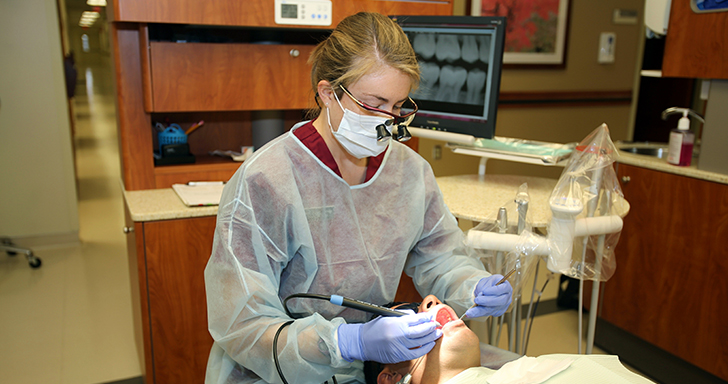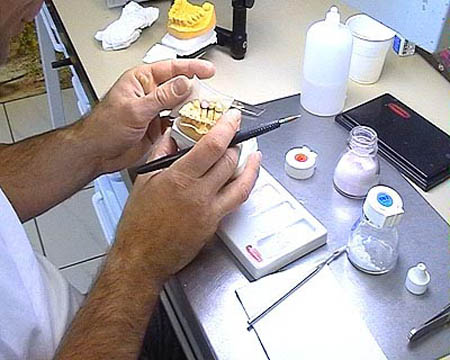|
Cooling Out
Cooling out is an informal set of practices used by colleges, especially two-year, junior, and community colleges, to handle students whose lack of academic ability or other resources prevent them from achieving the educational goals they have developed for themselves such as attaining a bachelor's degree. The purpose of cooling out is to encourage the students to adjust their expectations or redefine failure. The practices contrast with "warming up", in which students who aspire to easier educational goals are encouraged to reach for more ambitious degrees. History According to Burton R. Clark's 1960 article "The Cooling-Out Function in Higher Education", the term was first used by Erving Goffman in the 1952 article "Cooling the Mark Out: Some Aspects of Adaptation to Failure". Goffman used the term to describe a practice of confidence artists, but Clark proposed that it was a legitimate function of higher education to gradually refocus students from unattainable goals to achievem ... [...More Info...] [...Related Items...] OR: [Wikipedia] [Google] [Baidu] |
Junior College
A junior college (sometimes referred to colloquially as a juco, JuCo or JC) is a post-secondary educational institution offering vocational training designed to prepare students for either skilled trades and technical occupations and workers in support roles in professions such as engineering, accountancy, business administration, nursing, medicine, architecture, and criminology, or for additional education at another college with more advanced academic material. Students typically attend junior colleges for one to three years. By country Bangladesh In Bangladesh, after completing the tenth-grade board exam (Secondary School Certificate), students attend two years of junior college, named intermediate college. After passing the SSC exam, students can apply for their desired colleges, where they study in three groups, namely Science, Humanities and Commerce for two years. After that, students sit for Higher Secondary Certificate at the end of their second year in intermediate ... [...More Info...] [...Related Items...] OR: [Wikipedia] [Google] [Baidu] |
Community College
A community college is a type of educational institution. The term can have different meanings in different countries: many community colleges have an "open enrollment" for students who have graduated from high school (also known as senior secondary school or upper secondary school). The term usually refers to a higher educational institution that provides workforce education and college transfer academic programs. Some institutions maintain athletic teams and dormitories similar to their university counterparts. Australia In Australia, the term "community college" refers to small private businesses running short (e.g. 6 weeks) courses generally of a self-improvement or hobbyist nature. Equivalent to the American notion of community colleges are Technical and further education, Tertiary and Further Education colleges or TAFEs; these are institutions regulated mostly at state and territory level. There are also an increasing number of private providers colloquially called "col ... [...More Info...] [...Related Items...] OR: [Wikipedia] [Google] [Baidu] |
Confidence Trick
A confidence trick is an attempt to defraud a person or group after first gaining their trust. Confidence tricks exploit victims using their credulity, naïveté, compassion, vanity, confidence, irresponsibility, and greed. Researchers have defined confidence tricks as "a distinctive species of fraudulent conduct ..intending to further voluntary exchanges that are not mutually beneficial", as they "benefit con operators ('con men') at the expense of their victims (the 'marks')". Terminology Synonyms include con, confidence game, confidence scheme, ripoff, scam, and stratagem. The perpetrator of a confidence trick (or "con trick") is often referred to as a confidence (or "con") man, con-artist, or a "grifter". The shell game dates back at least to Ancient Greece. Samuel Thompson (1821–1856) was the original "confidence man". Thompson was a clumsy swindler who asked his victims to express confidence in him by giving him money or their watch rather than gaining their confidenc ... [...More Info...] [...Related Items...] OR: [Wikipedia] [Google] [Baidu] |
Academic Credit
A credit is the recognition for having taken a course at school or university, used as measure if enough hours have been made for graduation. University credits United States Credit hours In a college or university in the United States, students generally receive credit hours based on the number of "contact hours" per week in class, for one term, better known as semester credit hours (SCH). A contact hour includes any lecture or lab time when the professor is teaching the student or coaching the student while they apply the course information to an activity. Regardless of the duration of the course (i.e. a short semester like summer or intersession) and depending on the state or jurisdiction, a semester credit hour is 15-16 contact hours per semester. Most college and university courses are three semester credit hours (SCH) or 45-48 contact hours, so they usually meet for three hours per week over a 15-week semester. Homework is time the student spends applying the class materi ... [...More Info...] [...Related Items...] OR: [Wikipedia] [Google] [Baidu] |
Dentist
A dentist, also known as a dental surgeon, is a health care professional who specializes in dentistry (the diagnosis, prevention, management, and treatment of diseases and conditions of the mouth, oral cavity and other aspects of the craniofacial complex including the temporomandibular joint). The dentist's Dental auxiliary, supporting team aids in providing oral health services. The dental team includes dental assistants, dental hygienists, dental technicians, and sometimes dental therapists. History Middle Ages In China as well as France, the first people to perform dentistry were barbers. They have been categorized into 2 distinct groups: guild of barbers and lay barbers. The first group, the Guild of Barbers, was created to distinguish more educated and qualified dental surgeons from lay barbers. Guild barbers were trained to do complex surgeries. The second group, the lay barbers, were qualified to perform regular hygienic services such as shaving and tooth extraction as w ... [...More Info...] [...Related Items...] OR: [Wikipedia] [Google] [Baidu] |
Dental Hygienist
A dental hygienist or oral hygienist is a licensed dental professional, registered with a dental association or regulatory body within their country of practice. Prior to completing clinical and written board examinations, registered dental hygienists must have either an associate's or bachelor's degree in dental hygiene from an accredited college or university. Once registered, hygienists are primary healthcare professionals who work independently of or alongside dentists and other dental professionals to provide full oral health care. They have the training and education that focus on and specialize in the prevention and treatment of many oral diseases. Dental hygienists have a specific scope of clinical procedures they provide to their patients. They assess a patient's condition in order to offer patient-specific preventive and educational services to promote and maintain good oral health. A major role of a dental hygienist is to perform periodontal therapy which includes thing ... [...More Info...] [...Related Items...] OR: [Wikipedia] [Google] [Baidu] |
Dental Technician
A dental technologist (dental laboratory technician) is a member of the dental team who, upon prescription from a dental clinician, constructs custom-made restorative and dental appliances. There are four major disciplines within dental technology. These are ''fixed prosthesis'' including crowns, bridges and implants; ''removable prosthesis'', including dentures and removable partial dentures; ''maxillofacial prosthesis'', including ocular prosthesis and craniofacial prosthesis; and ''orthodontics and auxiliaries'', including orthodontic appliances and mouthguards. The dentist communicates with the dental technologist with prescriptions, drawings, and measurements taken from the patient. The most important aspect of this is a dental impression into which the technologist flows a gypsum dental stone to create a replica of the patient's anatomy known as a dental cast. A technologist can then use this cast for the construction of custom appliances. Fixed restorations A fixed ... [...More Info...] [...Related Items...] OR: [Wikipedia] [Google] [Baidu] |
College Entrance Exams
In education, an entrance examination or admission examination is an examination that educational institutions conduct to select prospective students. It may be held at any stage of education, from primary to tertiary, even though it is typically held at tertiary stage. By country France In France, the Concours Général, taken in the last year of High School (Lycée), is considered to be particularly difficult with only 250 places in all subjects for 15,000 applicants. There is also an entrance examination in order to enter medicine studies. Grandes écoles of engineering and grandes écoles of business are some other examinations. India In India, entrance examinations are chiefly confined to medicine, engineering, and management. These range from the BITSAT and the IIT-JEE -where less than one in a hundred can hope to get admission- to state entrance examinations, which are many and varied. The stiff competition has led to a situation where many students neglect th ... [...More Info...] [...Related Items...] OR: [Wikipedia] [Google] [Baidu] |
Educational Practices
Educational technology (commonly abbreviated as edutech, or edtech) is the combined use of computer hardware, software, and educational theory and practice to facilitate learning. When referred to with its abbreviation, edtech, it often refers to the industry of companies that create educational technology. In addition to the practical educational experience, educational technology is based on theoretical knowledge from various disciplines such as communication, education, psychology, sociology, artificial intelligence, and computer science. It encompasses several domains including learning theory, computer-based training, online learning, and m-learning where mobile technologies are used. Definition The Association for Educational Communications and Technology (AECT) has defined educational technology as "the study and ethical practice of facilitating learning and improving performance by creating, using and managing appropriate technological processes and resources". It ... [...More Info...] [...Related Items...] OR: [Wikipedia] [Google] [Baidu] |




